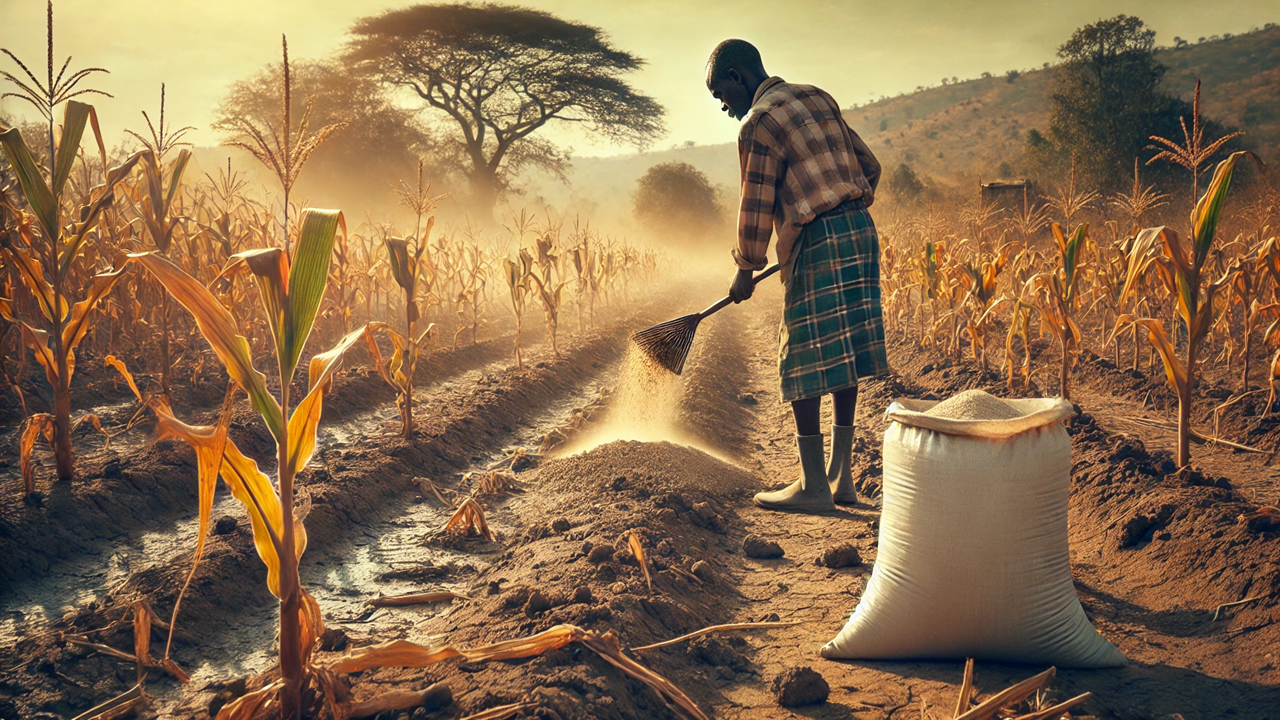IFAD Calls for Increased Support for Small-Scale Farmers at COP16 to Combat Biodiversity Loss and Climate Change
With over 3 billion people unable to afford a healthy diet, IFAD emphasizes the need for these farmers to sustainably cultivate diverse crops for both local and global consumption.

The International Fund for Agricultural Development (IFAD) is urging global leaders at the UN Biodiversity Conference (CBD COP16) in Cali, Colombia, to prioritize funding for small-scale farmers, who are at the forefront of biodiversity loss and climate change. With over 3 billion people unable to afford a healthy diet, IFAD emphasizes the need for these farmers to sustainably cultivate diverse crops for both local and global consumption.
As the world faces the dual challenge of feeding a projected 9.7 billion people by 2050 while reversing environmental degradation, transforming agri-food systems is imperative. “Addressing this situation requires transforming agri-food systems to become more sustainable and biodiversity-friendly, which includes adopting agroecological practices and promoting agrobiodiversity,” stated Oliver Page, IFAD’s Climate Change and Environmental Specialist for the Latin America and Caribbean region, leading the delegation at COP16.
Recognizing the interconnectedness of environmental degradation and climate crises, IFAD has committed to channelling 30% of its climate finance toward nature-based solutions by 2030. This pledge aligns with the Kunming-Montreal Global Biodiversity Framework (GBF) adopted at COP15 in 2022, underscoring IFAD's dedication to a people-centred approach that balances nature, livelihoods, and food security. The Fund's new biodiversity strategy aims to incorporate the protection, sustainable use, and promotion of biodiversity in all its operations.
Biodiversity is critical for sustainable agri-food systems, enhancing agricultural productivity and resilience through key roles in pollination, nutrient cycling, pest control, and maintaining genetic diversity. It supports essential ecosystem services like water purification and nutrient cycling, contributing an estimated $125 trillion annually to the global economy. However, biodiversity loss weakens ecosystems and their capacity to support life, posing risks to food security and livelihoods.
Small-scale farmers, Indigenous Peoples, youth, women, and value chain partners in developing countries play a crucial role in preserving biodiversity but currently lack adequate representation in national and international processes and financing. Over the last decade, donor support for agricultural development has stagnated at just 4-6% of total official development assistance, with small-scale farmers receiving less than 1% of global climate finance—around $5.53 billion—which is grossly insufficient to address their needs. To transform food systems globally, an estimated $300 to 400 billion per year is required for sustainability, equity, and resilience.
During COP16, negotiations aim to close a $700 billion biodiversity finance gap annually and align financial flows with the GBF. IFAD is actively scaling up partnerships with financing entities, including the Global Environment Facility (GEF), the Green Climate Fund (GCF), and the Adaptation Fund (AF). The organization has developed a diversified GEF portfolio focusing on biodiversity and sustainable land management and co-leads the GEF8 Integrated Program on Food Systems, which aims to catalyze transitions toward sustainable, nature-positive production systems.
IFAD’s Engagement at COP16
To highlight challenges and potential solutions, IFAD delegates will participate in over 20 side events addressing biodiversity, finance, sustainable agriculture, and climate resilience. These events will feature experts, Indigenous Peoples, small-scale farmers, youth, and development partners.
On October 28, IFAD will partner with the CBD and FAO to host the event “Creating an Enabling Environment for Sustainable Agri-Food Systems,” from 11:30 AM to 1:00 PM during the Food Day at the Kunming-Montreal Global Biodiversity Framework Pavilion (Blue Zone). This roundtable discussion will engage representatives from the finance sector and farmers’ organizations on the challenges and opportunities of leveraging finance for sustainable food systems.
The Role of Small-Scale Farmers: Small-scale farmers are responsible for producing one-third of the world’s food, yet their livelihoods are increasingly threatened by climate change and environmental degradation.
Global Food Security: The push for sustainable agri-food systems is not only a matter of biodiversity preservation but also essential for global food security.
Climate Resilience: Integrating biodiversity into farming practices enhances resilience against extreme weather events, a growing concern due to climate change.
Through focused support and innovative financing, IFAD aims to empower small-scale farmers to become agents of change in the fight against biodiversity loss and climate change, ultimately contributing to a more sustainable and equitable future for all.
ALSO READ
The Alarming Impact of Climate Change on Global Crop Yields and Food Security
Climate Change's Fierce Grip on Philippine Typhoons
World Court's Climate Change Verdict: A Precipice for Global Justice
World Court Poised to Influence Climate Change Accountability
Catastrophic Cyclone Chido Devastates Mayotte: A Tragic Tale of Survival and Climate Change










